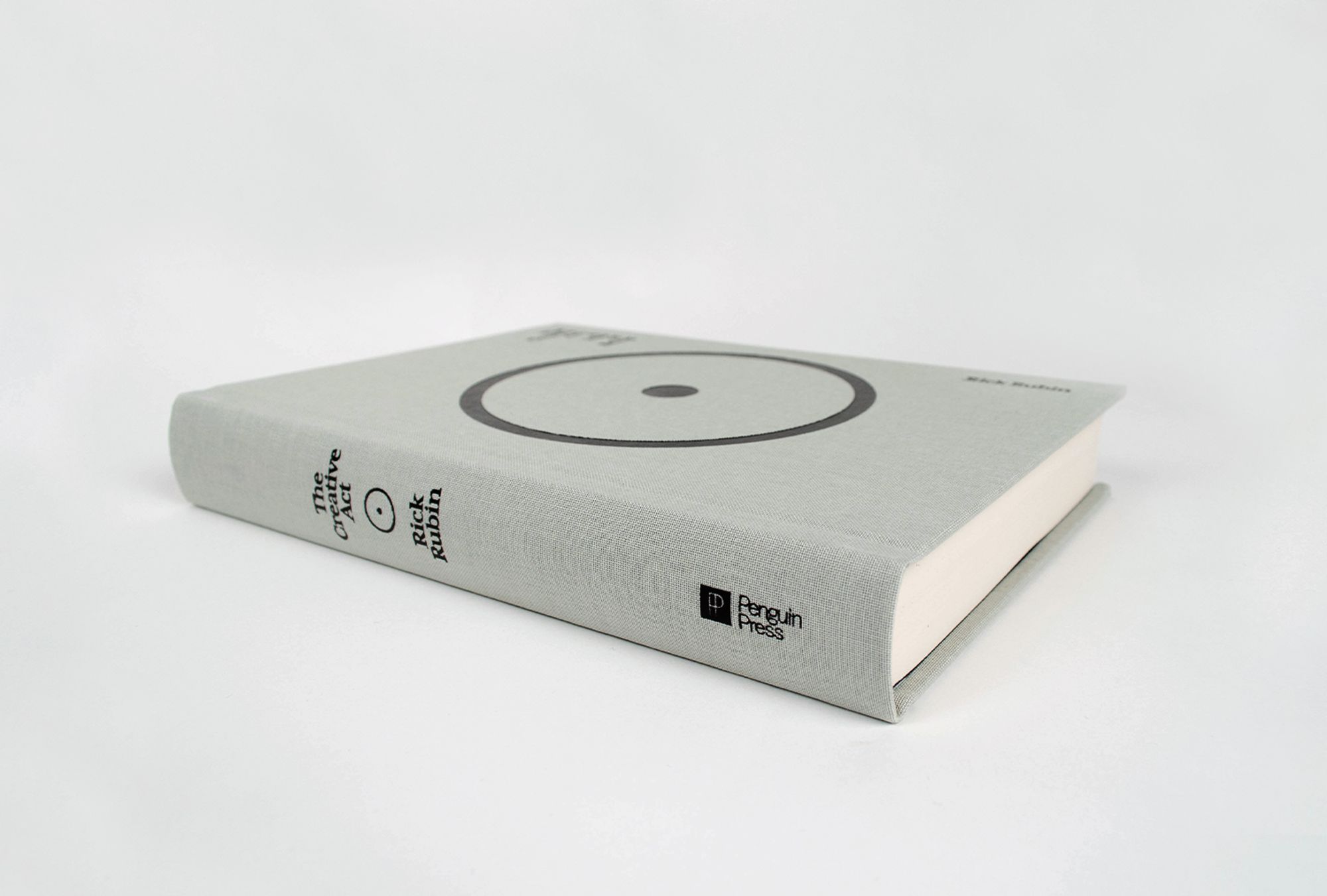Rick Rubin on Listening
The following is an exclusive excerpt from Rick Rubin's new book The Creative Act: A Way of Being, published on January 17th, 2023, by Penguin Press.
When listening, there is only now. In Bhuddhist practice, a bell is rung as part of the ritual. The sound instantly pulls the participant into the present moment. It’s a small reminder to wake up.
While the eyes and the mouth can be sealed, an ear has no lid, nothing to close. It takes in what surrounds it. It receives but can’t transmit.
The ear is simply present to the world.
When we hear, sounds enter the ear autonomously. Often, we’re not aware of all the individual sounds and their full range.
Listening is paying attention to those sounds, being present with them, being in communion with them. Though to say we listen with the ears, or the mind, might be a misconception. We listen with the whole body, our whole self.
The vibrations filling the space around us, the act of sound waves hitting the body, the spatial perceptions they indicate, the internal physical reactions they stimulate—this is all part of listening. Certain bass sounds can be felt only in the body, they can’t be perceived by the ears.
The difference can be noticed when listening to music through headphones instead of speakers.
Headphones create an illusion, tricking your senses into believing you are hearing everything the music is offering. Many artists refuse to use headphones in the studio as it is a poor replica of the real-world listening experience. With speakers, we are closer to the sound of instruments in the room—immersed physically in a full sonic spectrum of vibration.
Many of us experience life as if we’re taking it in through a pair of headphones. We strip away the full register. We hear information, but don’t detect the subtler vibrations of feeling in the body.
When you practice listening with the whole self, you expand the scope of your consciousness to include vast amounts of information otherwise missed, and discover more material to feed your art habit.
If it’s music you’re listening to, consider closing your eyes. You may find yourself getting lost in the experience. When the piece ends, you might be surprised by where you find yourself. You’ve been transported to another place. The place where the music lives.

Communication moves in two directions, even when one person speaks and another listens silently.
When the listener is totally present, the speaker often communicates differently. Most people aren’t used to being fully heard, and it can be jarring for them.
Sometimes we block the flow of information being offered and compromise true listening. Our critical mind may kick in, taking note of what we agree with and what we don’t, or what we like and dislike. We may look for reasons to distrust the speaker or make them wrong.
Formulating an opinion is not listening. Neither is preparing a response, or defending our position or attacking another’s. To listen impatiently is to hear nothing at all.
Listening is suspending disbelief.
We are openly receiving. Paying attention with no preconceived ideas. The only goal is to fully and clearly understand what is being transmitted, remaining totally present with what’s being expressed—and allowing it to be what it is.
Anything less is not only a disservice to the speaker, but also to yourself. While creating and defending a story in your own head, you miss information that might alter or evolve your current thoughts.
If we can go beyond our reflective response, we may find there is something more beneath that resonates with us or helps our understanding. The new information might reinforce an idea, slightly alter it, or completely reverse it.
Listening without prejudice is how we grow and learn as people. More often than not, there are no right answers, just different perspectives. The more perspectives we can learn to see, the greater our understanding becomes. Our filter can begin to more accurately approach what truly is, rather than a narrow sliver interpreted through our bias.
Regardless of the type of art you’re making, listening opens possibilities. It allows you to see a bigger world. Many of our beliefs were learned before we had a choice in what we were taught. Some of them might go back generations and may no longer apply. Some may never have applied.
Listening, then, is not just awareness. It’s freedom from accepted limitations. ♦
Subscribe to Broadcast